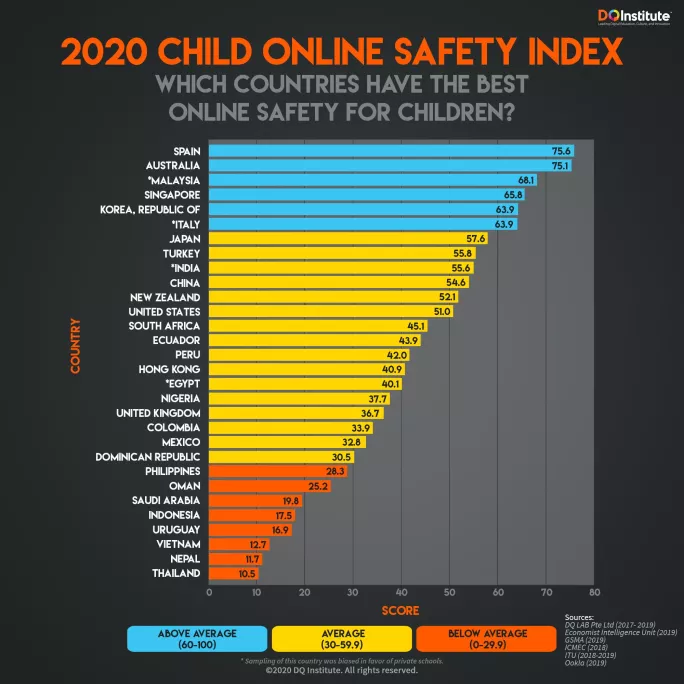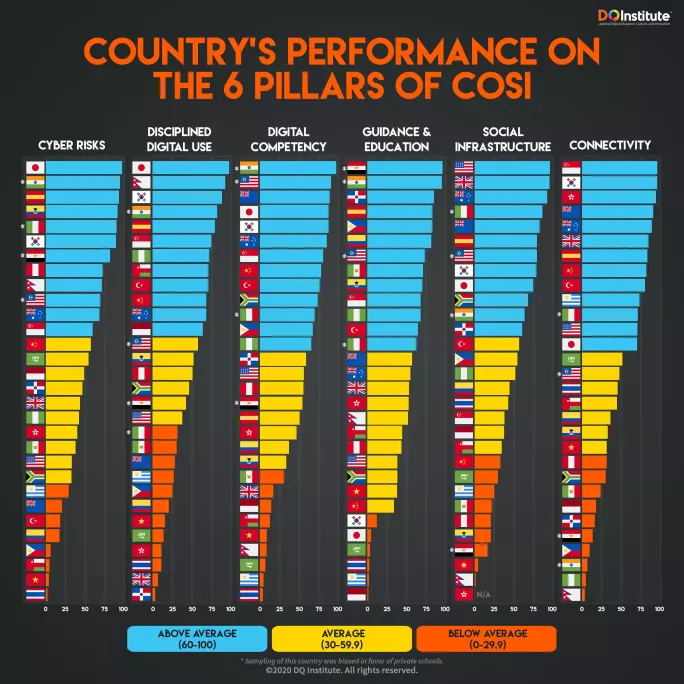The UK ranks among the world’s worst countries for online safety, according to a new global study that shows children here spend almost two days a week glued to screens.
An international league table for online safety among young people places the UK behind nearly all of the other developed countries in the study, including Spain, Italy, the US, South Africa and Australia.
It is ranked just above Colombia, Mexico and the Dominican Republic in the Child Online Safety Index (COSI), based on a three-year survey of more than 145,000 children and young people in 30 countries.
Revealed: The figures that show the danger pupils face online
School leaders: Don’t leave children to their own devices
Viewpoint: ‘There’s only so much teachers can do about online safety’
The overall COSI ranking includes six measures: cyber risks; disciplined digital use; digital competency; guidance and education; social infrastructure; and connectivity.
Online safety
The study, by think tank DQ Institute, gave the UK an overall score of 36.7 - placing it 19th overall, seven spots below the US (50.1), and nine places below China (54.6).
The UK also ranked second from last overall for children’s “disciplined digital use” - based on excessive screen time, high social media and gaming use, and mobile phone ownership.
The study found that, on average, eight- to 19-year-olds in the UK are spending almost two days (44 hours) per week looking at screens, including computers, mobile phones and televisions.
This is the second-highest figure of all the countries surveyed, and almost twice that of Japan - where children spend 24 hours per week looking at screens.
The UK is also ranked eighth from last for “digital competency”, based on children’s ability to use technology safely and responsibly.
However, it performs better for “social infrastructure”, which factors in government policies and ethical industry practices for child online protection - ranking second overall, beaten only by the US.
The UK also comes in sixth place for “connectivity”, which measures children’s access to the internet.
Yuhyun Park, founder of the DQ Institute, said the UK’s poor performance in the “disciplined digital use” measure should serve as a “wake-up call to everyone in British society”.
She called for governments across the world to “back stronger digital education”, adding: “Primary schools also must teach students digital citizenship as part of their standard curriculum.
“What we are witnessing is a global cyber-pandemic with high exposure to multiple forms of online risks threatening children across all the countries we surveyed.
“Everyone in society has a role to play in turning this around. Businesses, from social media and telecommunications to hardware and gaming companies, should make child online safety a core business principle.
“Companies should also partner with schools to help tackle cyberbullying. And governments must back stronger digital education. Most importantly, parents must be aware that they can make changes and reduce online harm.”
The Department for Digital, Culture, Media and Sport (DCMS) has been approached for comment.






